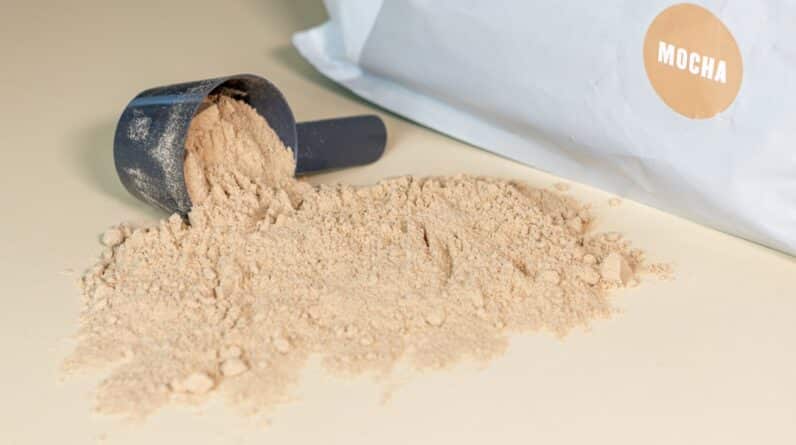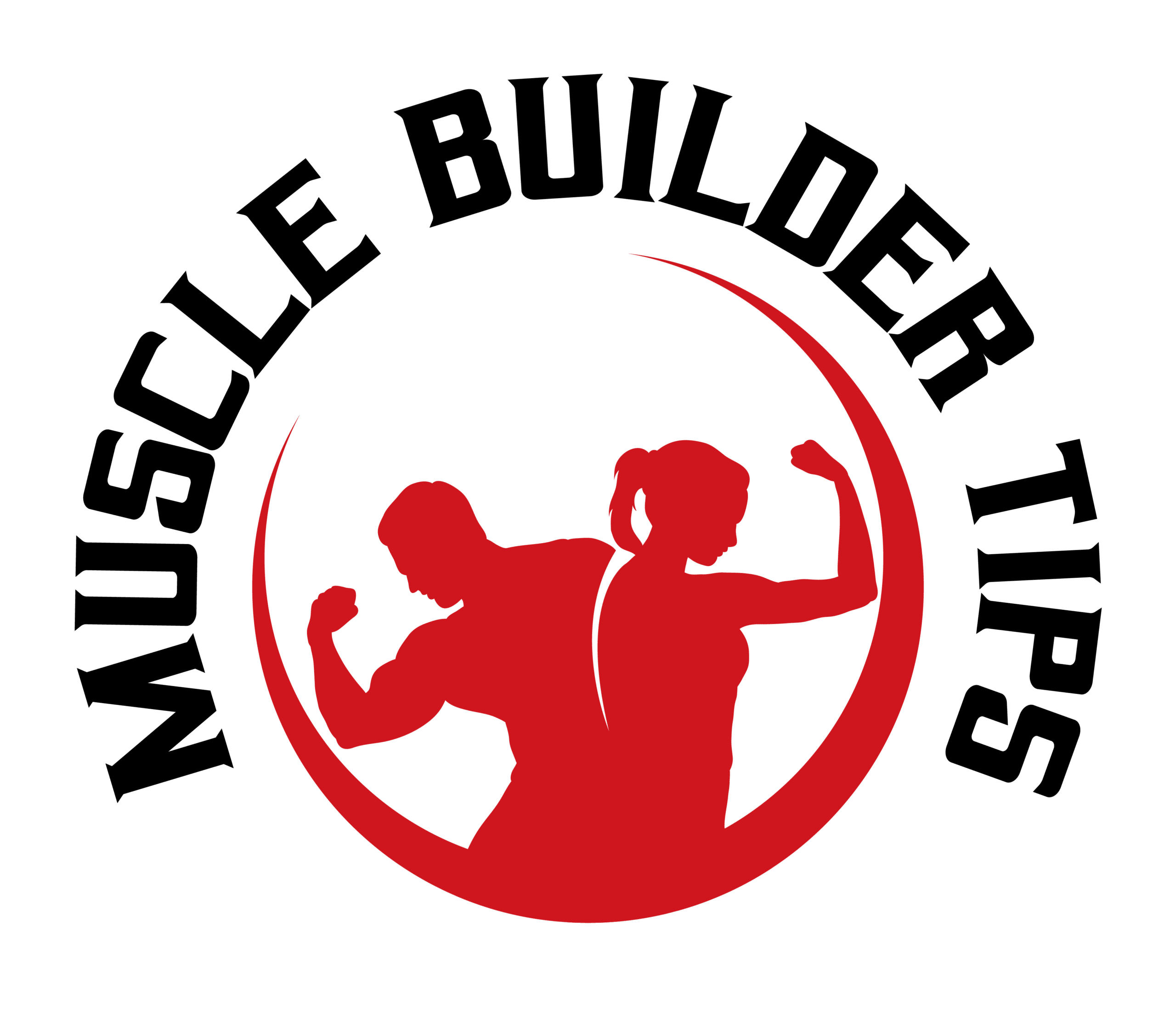
When you embark on a fitness journey aimed at toning your body and gaining muscle, protein becomes a crucial component of your diet. Protein powder serves as a convenient and effective way to ensure you meet your daily protein requirements, especially when you’re engaged in rigorous workouts. As you push your body to its limits, your muscles undergo stress and micro-tears, which need to be repaired for growth.
This is where protein plays a vital role; it provides the building blocks—amino acids—that your body requires to repair and build muscle tissue. Without adequate protein intake, you may find it challenging to achieve your desired results, regardless of how hard you train. Moreover, protein powder can be particularly beneficial for those with busy lifestyles.
Preparing high-protein meals can be time-consuming, and sometimes you may not have the opportunity to sit down for a full meal. In such cases, protein powder offers a quick and efficient solution. You can easily mix it into smoothies, oatmeal, or even baked goods, ensuring that you get the necessary nutrients without compromising your schedule.
By incorporating protein powder into your diet, you not only support muscle recovery but also help maintain a balanced nutritional intake that aligns with your fitness goals.
Key Takeaways
- Protein powder is important for toning and muscle gain as it provides the necessary building blocks for muscle growth and repair.
- When choosing the best protein powder, consider factors such as your dietary restrictions, fitness goals, and ingredient quality.
- Whey protein is considered the gold standard for muscle gain due to its high quality and fast absorption rate.
- Casein protein is a slow-release muscle builder, making it ideal for sustained muscle recovery and growth.
- Plant-based protein powders are a great option for toning and muscle gain, especially for those with dietary restrictions or preferences.
Factors to Consider When Choosing the Best Protein Powder
Selecting the right protein powder can be overwhelming given the plethora of options available on the market. One of the first factors to consider is the source of the protein. Different types of protein powders are derived from various sources, including whey, casein, soy, pea, and rice.
Each type has its unique benefits and drawbacks, so it’s essential to choose one that aligns with your dietary preferences and fitness objectives. For instance, if you’re lactose intolerant or following a vegan diet, plant-based protein powders may be more suitable for you. Another critical aspect to evaluate is the protein content per serving.
You want to ensure that the powder you choose provides a sufficient amount of protein to support your muscle-building efforts. Generally, a good protein powder should contain at least 20 grams of protein per serving. Additionally, pay attention to the ingredient list; some protein powders may contain added sugars, artificial flavors, or fillers that could detract from their overall quality.
Opting for a product with minimal ingredients can help you avoid unnecessary additives and ensure you’re fueling your body with the best possible nutrition.
Whey Protein: The Gold Standard for Muscle Gain
Whey protein is often regarded as the gold standard when it comes to muscle gain and recovery. Derived from milk during the cheese-making process, whey is a complete protein that contains all nine essential amino acids necessary for muscle repair and growth. Its high biological value means that your body can absorb and utilize it efficiently, making it an excellent choice for post-workout recovery.
When you consume whey protein after exercising, it helps stimulate muscle protein synthesis, allowing your muscles to recover faster and grow stronger. In addition to its muscle-building properties, whey protein is also known for its versatility. It comes in various forms—concentrate, isolate, and hydrolysate—each with different levels of processing and protein content.
Whey concentrate typically contains around 70-80% protein, while whey isolate boasts a higher concentration of about 90% or more. Hydrolyzed whey is pre-digested for faster absorption but may come at a higher price point. Depending on your specific needs and budget, you can choose the form that best suits your lifestyle while still reaping the benefits of this powerful protein source.
Casein Protein: The Slow-Release Muscle Builder
While whey protein is celebrated for its rapid absorption, casein protein offers a different advantage: slow-release digestion. Casein is also derived from milk but is absorbed more gradually by the body. This slow release of amino acids makes casein an ideal option for those looking to sustain muscle repair over an extended period.
Consuming casein before bedtime can be particularly beneficial, as it provides a steady supply of amino acids while you sleep, promoting muscle recovery during those crucial hours. Incorporating casein into your routine can help prevent muscle breakdown during periods of fasting or extended time between meals. This makes it an excellent choice for individuals who may not have the opportunity to eat frequently throughout the day.
Additionally, casein has been shown to promote feelings of fullness, which can aid in weight management if you’re looking to tone up while gaining muscle. By understanding how casein works in conjunction with your body’s needs, you can effectively use it as part of your overall nutrition strategy.
Plant-Based Protein Powders for Toning and Muscle Gain
If you’re following a vegan diet or simply prefer plant-based options, there are numerous plant-based protein powders available that can support your toning and muscle gain goals. Common sources include pea protein, brown rice protein, hemp protein, and soy protein. Each of these options offers unique benefits; for example, pea protein is rich in branched-chain amino acids (BCAAs), which are essential for muscle recovery and growth.
On the other hand, soy protein is one of the few plant-based proteins that is considered a complete protein. When choosing plant-based protein powders, it’s essential to look for blends that combine different sources to ensure you’re getting a complete amino acid profile. Many brands offer formulations that mix various plant proteins to provide a balanced nutritional profile similar to that of animal-based proteins.
Additionally, plant-based proteins often come with added benefits such as fiber and antioxidants, which can further enhance your overall health and wellness.
Choosing the Right Protein Powder for Your Fitness Goals
Your fitness goals will significantly influence your choice of protein powder. If you’re primarily focused on building muscle mass, whey or casein proteins may be more suitable due to their high biological value and amino acid profiles. Conversely, if you’re looking to tone up while maintaining a lean physique, plant-based proteins could be an excellent option as they often come with fewer calories and added nutrients that support overall health.
It’s also important to consider any dietary restrictions or preferences you may have when selecting a protein powder. If you’re lactose intolerant or allergic to dairy, opting for plant-based or lactose-free options will be essential. Additionally, if you’re looking for a clean label product with minimal additives, take the time to research brands that prioritize quality ingredients over fillers or artificial flavors.
By aligning your choice of protein powder with your specific fitness goals and dietary needs, you’ll set yourself up for success in achieving the results you desire.
How to Incorporate Protein Powder into Your Toning and Muscle Gain Routine
Incorporating protein powder into your daily routine doesn’t have to be complicated; there are numerous ways to enjoy its benefits seamlessly. One popular method is mixing it into smoothies or shakes post-workout. This not only helps replenish lost nutrients but also provides a delicious treat that can keep you motivated on your fitness journey.
You can experiment with different fruits, vegetables, and nut butters to create a variety of flavors that suit your taste preferences. Another effective way to use protein powder is by adding it to meals and snacks throughout the day. For instance, you can stir it into oatmeal or yogurt for breakfast or mix it into pancake batter for a nutritious twist on a classic favorite.
Baking with protein powder is also an excellent option; consider making protein bars or muffins that can serve as convenient snacks on-the-go. By finding creative ways to incorporate protein powder into your meals and snacks, you’ll ensure that you’re consistently meeting your nutritional needs while enjoying the process.
The Best Protein Powder Brands for Toning and Muscle Gain
With so many brands available in the market today, identifying the best protein powder can feel daunting. However, some brands have established themselves as leaders in quality and effectiveness. Optimum Nutrition’s Gold Standard Whey is often praised for its taste and mixability while providing high-quality whey protein at an affordable price point.
Similarly, Dymatize Nutrition’s ISO100 offers a hydrolyzed whey isolate option that is perfect for those seeking rapid absorption post-workout. For those leaning towards plant-based options, brands like Orgain and Vega have gained popularity for their clean ingredients and delicious flavors. Orgain’s Organic Protein Powder combines pea and brown rice proteins while being free from artificial additives.
Vega’s Protein & Greens blend offers a unique combination of plant-based proteins along with added greens for an extra nutritional boost. By exploring these reputable brands and their offerings, you’ll be well-equipped to find a protein powder that aligns with your toning and muscle gain goals while ensuring quality nutrition in every scoop.
If you’re looking to enhance your muscle gain and toning results, it’s important to also consider stress management and cortisol levels. According to a recent article on musclesbuilder.tips, high levels of cortisol, the stress hormone, can hinder muscle growth and tone. In addition to finding the best protein powder for your goals, incorporating stress-reducing techniques into your routine can help optimize your results. Additionally, breaking through training plateaus, as discussed in another article on the same site (musclesbuilder.tips), can also play a crucial role in achieving your desired muscle gain and toning outcomes.
FAQs
What is protein powder?
Protein powder is a dietary supplement that is typically made from whey, casein, soy, or egg proteins. It is used to supplement protein intake and aid in muscle recovery and growth.
How does protein powder help with toning and muscle gain?
Protein powder provides the body with the necessary building blocks (amino acids) to repair and build muscle tissue. It also helps to support muscle recovery after exercise, which can aid in muscle growth and toning.
What are the different types of protein powder?
The most common types of protein powder are whey, casein, soy, and egg protein. Whey protein is quickly absorbed by the body and is often used for post-workout recovery. Casein protein is slower to digest and is often taken before bed to support overnight muscle recovery. Soy protein is a plant-based option for those with dairy allergies or dietary restrictions. Egg protein is a high-quality protein source that is easily digestible.
How do I choose the best protein powder for toning and muscle gain?
When choosing a protein powder for toning and muscle gain, consider factors such as protein content, amino acid profile, taste, and any dietary restrictions or allergies. Whey protein is often recommended for its high protein content and quick absorption, but individual preferences and needs may vary.
How should I use protein powder for toning and muscle gain?
Protein powder can be used as a convenient post-workout shake, added to smoothies or recipes, or consumed as a snack between meals to support muscle recovery and growth. It is important to also maintain a balanced diet and exercise routine for optimal results.
